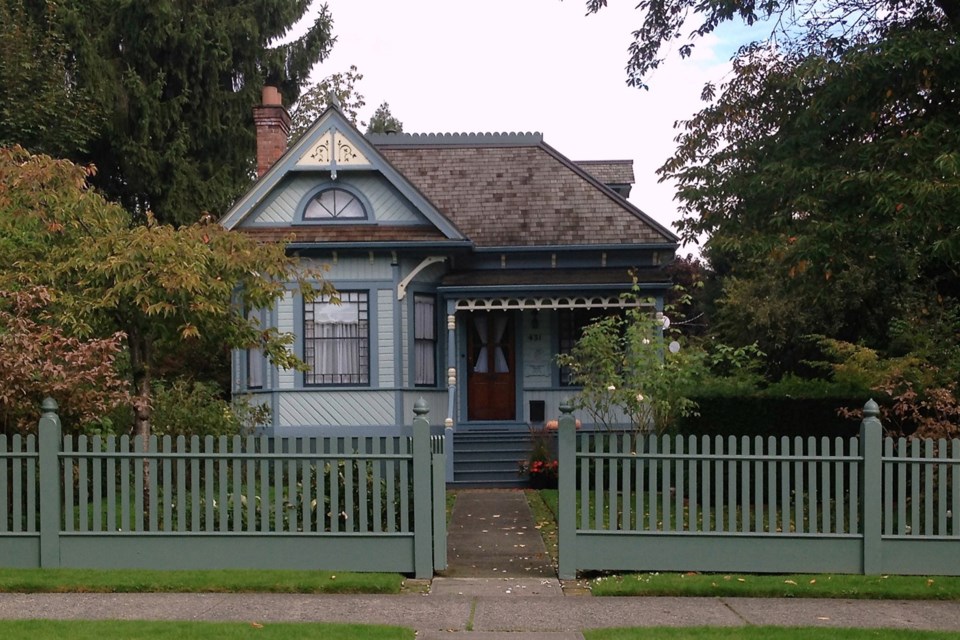If you thought there was a moratorium on demolition of heritage homes in the Queen’s Park neighbourhood, you were wrong. Or were you?
In June, city council approved a one-year “heritage control period” requiring owners of all single-family residential homes constructed before Dec. 31, 1966 to apply for a heritage alteration permit for demolitions or renovations.
Bev Grieve, the city’s director of development services, said there’s been “some confusion” about the issuance of demolition permits during a temporary heritage control period.
“The confusion is that there was a feeling that there was in fact a moratorium on demo permits in the Queen’s Park area,” she said. “What there is, and we have confirmed this with our solicitor, is there is not an ability to have a straight moratorium on demolitions. In terms of a heritage alteration permits, each one of those permits, every demolition permit, must be considered by council. It is possible for council to look at the heritage alteration permits and reject them.”
Grieve noted that if council rejected every application for a heritage alteration permit, it could be considered a defacto moratorium.
On Monday, council approved a number of recommendations related to the Queen’s Park heritage control period. These include:
* Endorsing some new evaluation criteria for demolitions, new building and renovation heritage alteration permits;
* Requiring a heritage assessment for all demolition and major renovation applications in the neighbourhood;
* Convening a review panel to consider the demolition application and new building heritage alteration permit applications.
Council also directed staff to use the new evaluation criteria to consider two demolition applications the city has received in the neighbourhood. (On Aug. 29, council received staff reports recommending approval of demolition permit applications for buildings at 215 Manitoba St. and 105 College Crt.)
“Definitely, coming back at the end of the summer period, I think everyone of us wasn't expecting to see the demolition applications based on our understanding of the conservation area,” Mayor Jonathan Cote said Monday night. “Council did direct staff to essentially do what they have just done here - provide a report with clarification.”
Monday’s report, however, triggered a lively discussion in council chambers, with some councillors believing the city is still able to impose a moratorium on demolitions in the Queen’s Park neighbourhood during the heritage control period. Councillors Bill Harper, Jaime McEvoy and Chuck Puchmayr voted against the staff recommendations, while Cote and councillors Patrick Johnstone, Mary Trentadue and Lorrie Williams supported the recommendations.
"Council agreed there would be no demolitions. Now they are saying, oh yes, there will be demolitions in certain circumstances. That's actually a change in position," Harper said. "I am going to be voting against this resolution because I think we should have, and still can have, a period by where there would be no demolitions for a year. I think that is a choice here. I understand the lawyer said that was a legal choice we could put forward. I am basically going to vote against this motion, and subsequently against all motions of demolitions for a year."
McEvoy expressed concern that voting on demolition permits on an individual basis does not address concerns about people buying homes, demolishing them, building a new house and making huge profits. He said the neighbourhood has been clear on its desire for a moratorium on demolitions.
"I think the first time council says yes to a demolition, it means that for the next year or whatever time period that will be, that there is an openness, there is a reason for a developer to buy a property thinking that they could get it developed or split the lot or whatever else ... I think that there is a fairly high risk in in taking this approach,” he said.
Johnstone argued that the city doesn’t have the legal authority under the Local Government Act to impose a moratorium on demolitions, but the heritage control period gives council the ability to say no to demolition permits when they are sought – something the city couldn’t do before approving the heritage control period.
“This control period gives us the option to say no for that time during the control period,” he said. “That is as protective as we as a council can be under the Local Government Act.”
While council members have some differences of opinion on how the city approaches the heritage control period, Cote said they share the same end goal of creating a successful heritage conservation area.
“The last thing I want to do is see ourselves jeopardize the larger goal of creating a heritage conservation area by creating a larger political fight on something that I would say is actually not as divisive as it really needs to be,” he said. “The only thing that's happening in this recommendation is we are setting up what I would consider a pretty stringent process for anyone hoping over the next months to be able to demolish their house. Ultimately it will be this body right here that will get to make a decision on every single application that comes forward.”



